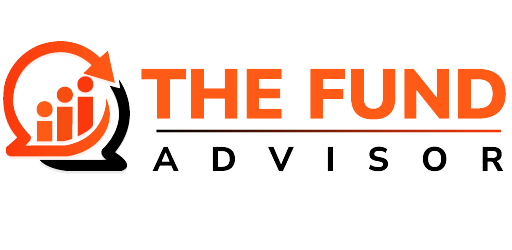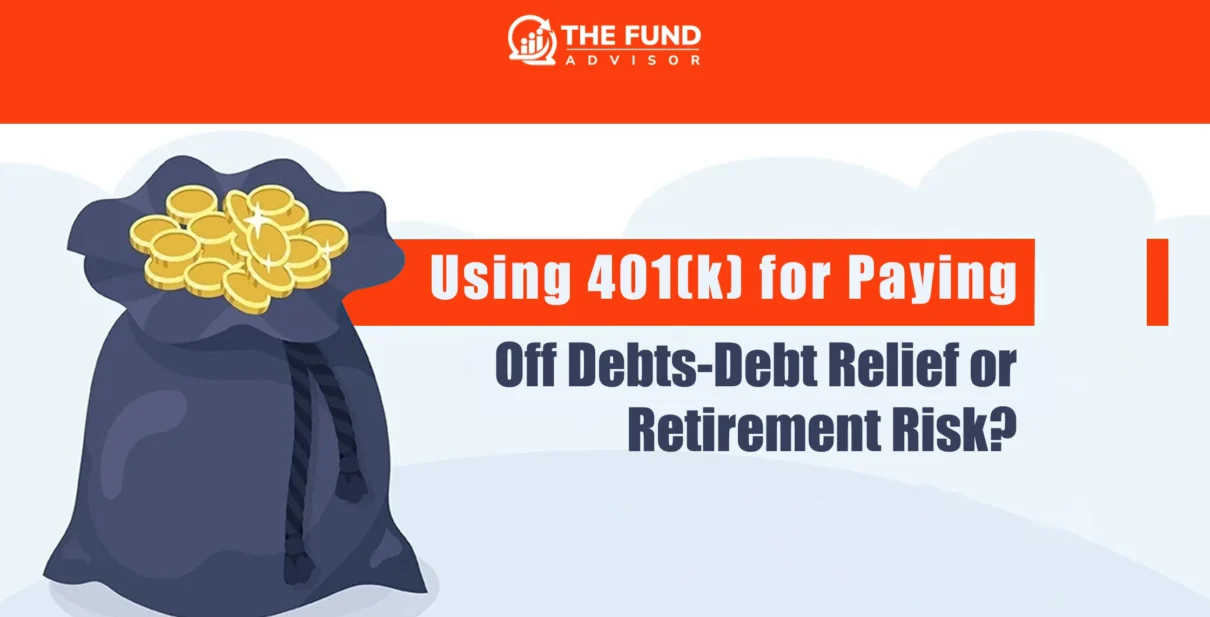In the time when an individual is stuck in the installments and repayments of debts, using a retirement savings account seems to be an appealing option. In this phase, the question “Can I use my 401(k) to pay off debt?” is very normal, especially for people who are facing severe financial burdens like personal loans, mortgages, credit card bills, etc.
While it is possible to take a withdrawal from a 401(k) account to pay off debts, it can be the wrong decision regarding retirement security. It is true that paying off debts is essential because it contains interest rates which makes the overall payable amount higher than the claimed amount. This article examines various aspects of this concern. So, let’s discuss.
Consideration Before Using 401(k) For Paying Off Debts
Instead of a 401(k), a strong savings account, some key considerations must be focused on before making any decision. Retirement savings are one of the important future planning assets that a person have. But withdrawing or impacting these funds may result in future financial compromises. Many people starts early withdrawing from their 401(k) to manage their current extra money needs. But this is just a cutting of future savings which may leads to even bigger money problems.
And the question, Can I use my 401(k) to pay off IRS debts, will also be covered in it. You need to know that :-
- Early withdrawal penalties can make this option costly: This means in retirement accounts like 401(k), a early withdrawal penalty is applicable to account holders who make withdrawals before the age of 59½ years.
- A loan must be repaid within five years, often through payroll deductions.
- Other IRS relief programs may be more advantageous.
The 401(k) account is designed for future purposes, and the IRS applies strict rules to any withdrawal or borrowing from the account. Only under some serious or specific circumstances is the hardship withdrawal allowed.
How Can I Use My 401(k) To Pay Off Debt?
The 401(k) retirement savings account is employer-sponsored. Typically, it is possible to pay off some debts using a 401(k) account in several ways, including hardship withdrawals and loans on a 401(k).
Hardship Withdrawal
This is a permanent distribution withdrawal option meant for immediate financial needs. It is subject to income tax and a 10% early withdrawal penalty if you are under 59½ years of age. The funds that you withdraw cannot be repaid, which means that once the funds are out, only the remaining funds will grow with new contributions added over time.
Hardship withdrawals are limited to specific circumstances, such as avoiding foreclosure, medical expenses, or funeral costs. Also, paying credit card debts or bills cannot be an acceptable reason to withdraw from the 401(k) account. This is because the funds are not returned, so the money leaving the account will reduce the retirement savings.
401(k) Loan
This is another but convenient way. In this, you can take a loan on your 401(k) account, meaning you are taking a loan on your own money. Instead of withdrawing money from your 401(k) account, which reduces retirement benefits, the benefit is that you don’t have to face penalties or taxes for this borrowing, and the borrowed money will again be repaid to your account in the form of instalments with interest.
In the question, can I use my 401(k) to pay off debt, this option is preferable to the hardship withdrawal because no penalties are applicable, and the money you withdraw will again be deposited into your account. But the factor is that the loan should be paid in 5 years, and during this period the out money will not be subject to growth and generate a return on investment.
Pros And Cons of Using 401(k) Account For Paying Off Debts
We know that withdrawing funds from a 401(k) account can reduce your retirement savings. But this situation has both pros and cons, which are as follows :-
Pros :-
- Quick access to cash for debt repayment.
- No credit check required for a 401(k) loan.
- Lower interest rates compared to most credit cards.
- Loan repayments go back into your retirement account.
- It may reduce credit card interest burden and improve credit utilization.
- Potentially avoid bankruptcy or foreclosure.
Cons :-
- Early withdrawal penalties and income tax if under 59½.
- Lost opportunity for long-term investment growth.
- Repayment difficulties if job loss occurs.
- Reduced retirement readiness.
- Loans must be repaid within five years, adding a monthly burden.
- Withdrawals are permanent and can’t be replaced easily.
- May limit future contributions while repaying the loan.
Can I use my 401(k) to pay off debt? The answer is yes, but still, the disadvantages are significant. Early withdrawal takes you to penalties and taxes and reduces the amount you can get. Taking a loan on a 401 (k) account is dangerous because in the case you leave or switch jobs, you need to pay the entire remaining loan amount. Not only penalties, you also you are also going to sacrifice future growth potential.
If you’re managing your retirement funds wisely, you should also consider how life decisions like Is it better to divorce before or after retirement can impact your financial future.
Using 401(k) To Pay Off Credit Card Debt Under The CARES Act
During the Covid-19 pandemic, the question ‘Can I use my 401(k) to pay off debt’ makes sense because the CARES Act (Coronavirus Aid, Relief, and Economic Security) was launched, which provides more accessibility to individual over their 401(k) account. This act allows individuals to withdraw up to $100,000 from their 401 (k) account without a 10% penalty and distributes the tax burden over 3 years. If the amount is repaid during this period, no taxation will apply. This act is only relevant for withdrawal in 2020.
Impact and Expiration
- These provisions were temporary and expired.
- Similar rules may return in future emergency legislation.
- Standard penalties and taxes now apply.
This act provides exceptional features, releasing unnecessary financial burden in this condition. This act is only applicable for withdrawals in the year 2020.
Looking for smarter ways to grow your retirement savings? Learn exactly How do I invest my 401(k) in stocks to maximize returns.
Is It Good To Use A 401(k) To Pay Off Debt?
This is the genuine question because it cannot be just answered as “NO”. In such a case, where serious financial crises arise, like avoiding bankruptcy or foreclosure, it might make sense. In most cases, it is not advised to use 401(k) account for paying any debt or other bills, because by this your retirement savings will be drained.
But you can go to other alternative options like Roth IRA, or another retirement plan that doesn’t consist of any penalty or taxation. Also, you can start saving early as liquid savings, which will help you in future financial crises without disturbing your 401 (k) account plan.
Alternative Ways to Pay Off Debt Without Using a 401(k)
There are various ways that a person can use to pay off debts instead of withdrawing from 401(k) account. Retirement saving means a decent amount of fund accumulation which can solve short-term money issues but will lead to even bigger crises in future. Understanding several strategries and alternative ways to prevent using of 401(k) funds for paying off debts is essential.
- Debt Consolidation: List all debts with different interest rates and payment schedules, then replace all of them with a single optimal loan with lower interest rates. This will make the repayment simple and reduce the overall loan burden.
- Credit Cards: You can use credit cards with 0% charges or with very minimal charges instead of taking high-interest personal loans.
- Lower Interest Rates: You can contact your loan lender about reducing the interest rates. It is often seen that lenders negotiate with the loan holder based on their modest credit and repayment record.
- Repayment Strategy: There are various repayment strategies available, like the snowball method and the avalanche method. These methods help in paying the debt effectively without taking a distribution from the retirement savings.
- Budgeting and Expense Tracking: It is essential to make a budget and expense plan. This will help in paying the debts efficiently while maintaining the daily lifestyle.
- Emergency Funds: Making a habit of saving a small amount of money for future emergencies will help in managing them without touching your 401(k) account.
- Expert Advice: Consult with a financial expert who can guide you towards a safe and secure financial future.
Conclusion :-
Can I use my 401(k) to pay off debts? The answer is yes, but it is not advised to do so. 401 (k) is a retirement savings account that provides comprehensive financial support for retirement life. Taking funds out from the 401(k) account can be done using a Hardship withdrawal or taking a loan on it.
But both options have pros and cons, like if they provide quick access to money when required, then the money you withdraw will not be repaid in the case of hardship withdrawal, and for a loan, the potential growth will be reduced. Before taking any decision, it is advised to consult with your HR department or an expert financial advisor.
If you find this article helpful, please follow us and share this with your family and friends.
Frequently Asked Questions
Can I take a 401(k) hardship withdrawal to pay off credit card debt?
Hardship withdrawals need a serious reason, like bankruptcy or immediate financial requirements. But the IRS doesn’t consider withdrawal for paying off credit card debt as a valid reason.
Is borrowing from a 401(k) a good idea?
Borrowing or, by any means, taking any cash out from the 401 (k) account is not considered a good practice. However, the loan is a more tempting option than hardship withdrawal, but still, you need to pay interest on your income, and the potential growth of the investment will be reduced significantly.
Does borrowing from your 401(k) affect your credit score?
There is no credit check required for borrowing from a 401(k), hence there is no impact on credit score due to any loan on a 401(k) account.
At what age is 401(k) withdrawal tax free?
There is always tax applied on 401(k) withdrawals, but if you withdraw after the age of 59½ years, then you can prevent a 10% early withdrawal penalty, but the general tax implication will be applicable.





